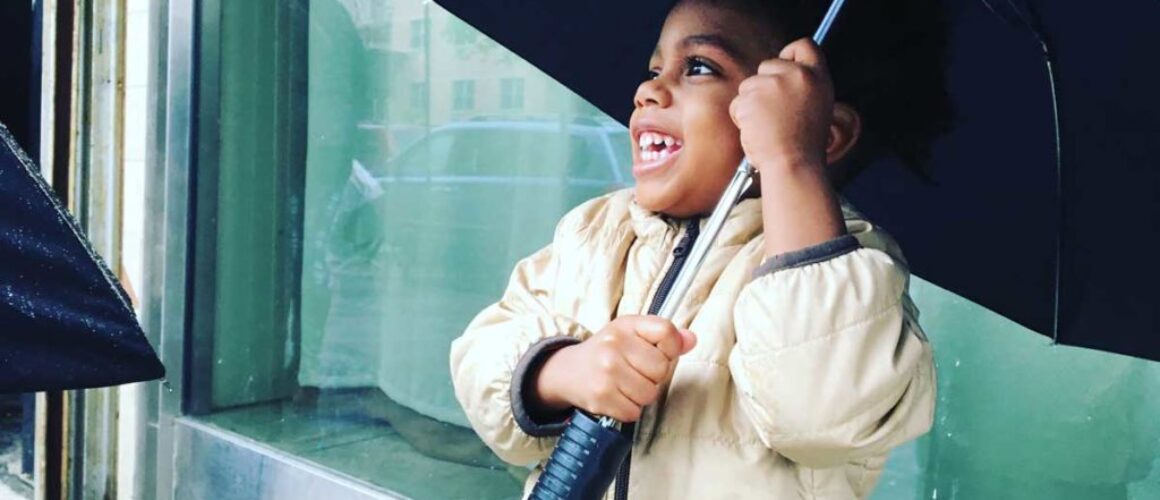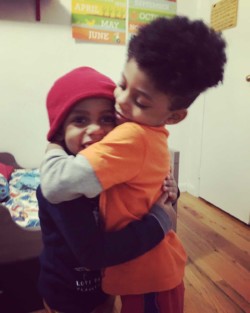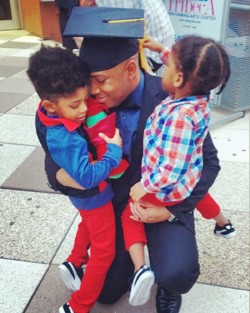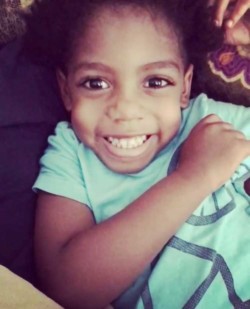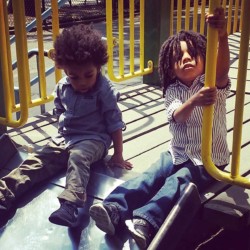Safe at School? Elijah’s Story and His Echo
Life-threatening allergic reactions to foods have increased by five times over the last decade, according to an analysis of private insurance claims by FAIR Health, an independent nonprofit that collects and analyzes data on privately billed health insurance claims.
This condition has taken the lives of far too many children. Too many of these life-threatening reactions are occurring at school. I recently met the parents, Dina and Thomas of the gorgeous three year old boy who died after his preschool fed him a grilled cheese sandwich. Elijah had a life-threatening dairy allergy. They have another son who also has life-threatening allergies and are doing everything they can to prevent another death.
They just appeared on Good Day New York, after we sat down to have this conversation. You can see their recent appearance and call for Elijah’s Law here.
They share their concerns here:
Q. Peanut allergy often makes headlines. But in the last few years, we have lost too many children, like your beautiful boy, to a dairy allergy. The preschool fed your boy a grilled cheese sandwich, despite documentation that he had a dairy allergy. As parents, you had taken every precaution to keep your child safe. Milk allergy is still largely misunderstood. What message do you have for schools about dairy allergy.
A. Dairy is what is given to children during their meals at school. It not just in their school food program but it could be in another child snack or food that is provided for a child’s birthday party. Milk allergies are very common but get overlooked as being “lactose intolerance” but milk allergies are as serious as any other severe food allergies. Schools should be able to provide a child who has food allergies with a safe environment, they should also provide those who suffer from dairy allergy alternative meal program, i.e., alternative to dairy such as, soy milk, rice milk etc. There are so many options out there but schools are so hesitant about it. These are just some steps a school can take in the right direction. My messages to all the parents who have a child with severe food allergies are staying on top of the school educators and school nurse. keep them well informed and remember you’re not being overbearing or problematic. You are protecting your child life and that the most important thing.
Q. Rather than call 911, the school called your wife. These are preventable tragedies if procedures are followed. What message do you have for schools and school nurses who often find themselves on the front line of children with food allergies?
A. You are the first line of defense when it comes to a child who suffers from food allergies. I understand it can be scary but you will also be saving someone life when following proper steps in caring for someone who’s having a severe allergic reaction or anaphylaxis. The schools and nurse should advocate for the children in their school to keep them safe at all cost. These children are dependent on you as an educator and medical personnel to be there for them when they’re not feeling well. Don’t just assume and just give an antihistamine treat the symptoms as very severe. Know the signs. “Know when to pen” (EpiPen/autoinjector). Make sure two auto-injectors are available, call 911.
Q. In your opinion, what one thing could be done at schools, both preschools and elementary schools, to help keep children safe?
A. I believe that all staff members of early learning programs, i.e., all daycare centers, Pre-K as well as K-12, should be trained on an on-going basis. Require an early learning program. Schools or human resources managers should sign-off when their staff have watched a training video, implemented and trained on mock emergency medical drills for severe allergic/anaphylaxis and completed an exam to test their understanding of what was taught to them. This should be an issue similar to CPR training so they understanding it to be life-saving.
Q. Tell us about Elijah’s echo.
A. Elijah’s Echo is the voice that he did not have when he was suffering from a severe allergic reaction. The initiative is designed to raise awareness of the importance of anaphylaxis and food allergy education and safety in the inner city schools here in New York City and hopefully throughout the country. Elijah’s Echo has been born of the tragic incident that occurred in a New York City Pre-K school/Daycare center on November 3rd, 2017, he was only 3 years of age. The incident soon after caused my son Elijah to pass away. Despite the school having his 504 plan and well documented his severe allergy to dairy products and stated they had medically trained staff to help identify when someone is ill or suffering from food allergies, an adult employee had fed my son Elijah a grilled cheese sandwich. (My son was deathly allergic to dairy and a few other foods.) Following the incident, Medical professionals at the hospital emergency trauma room were he was rushed to, worked on my son Elijah going into anaphylactic shock. The school had failed to report what Elijah had been fed. Soon after, my son Elijah passed away. Elijah’s Echo is the initiative and The Elijah-Alavi foundation soon to help raise in hopes that we’re able to put a real name and face on the importance of severity to anaphylaxis & food allergy awareness safety. Know the signs. Treat the symptoms. Share Elijah’s story. Continue Elijah’s Echo. #elijahsecho.
Q. It is important to acknowledge that it is not just parents who lose a child, but also siblings who lose a brother. Tell us a bit about Elijah’s big brother and what the community can do to help him and other kids who have lost siblings.
A. Sebastin was Elijah-Alavi best friend. They did everything together from building blocks arguing over silly things and hugging each other afterward, Sebastin thought Elijah how to read. Sebastin taught Elijah-Alavi all that he knew, they were inseparable. What I like for the community to do for Sebastin is to continue on for his brother Elijah-Alavi who was a very strong and independent little boy and be Elijah’s voice. Severe food allergies are not just something you sweep under a rug. It’s serious and with your help, you can prevent someone last bite by saving their lives from getting informed, get trained to understand the sign and symptoms of an allergic reaction and anaphylaxis.
